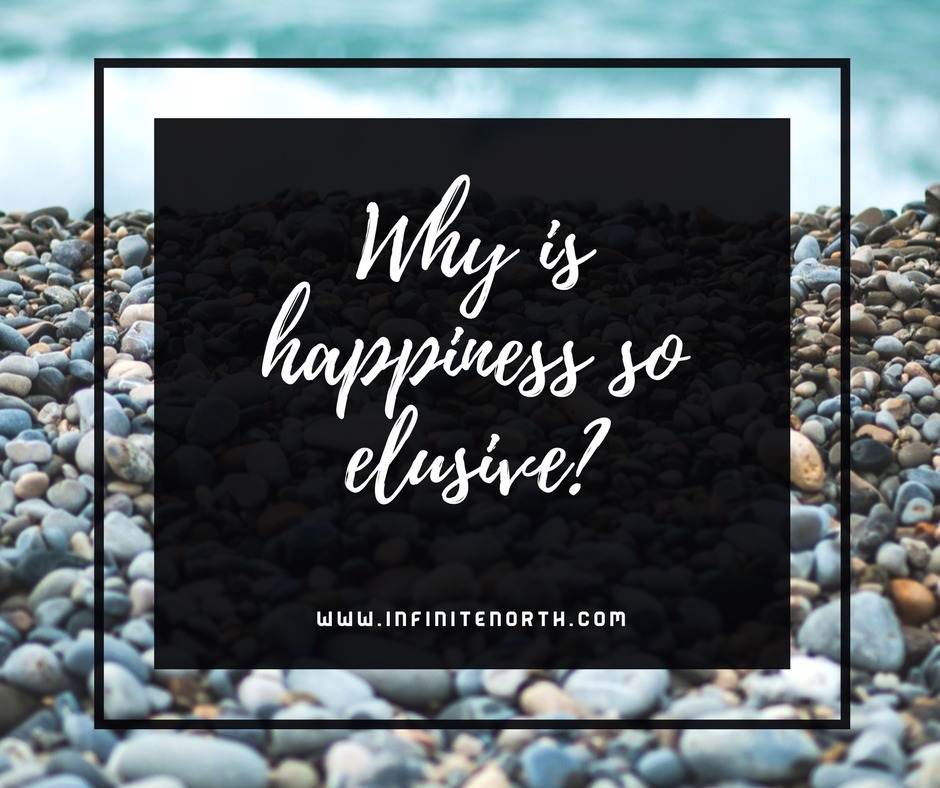It’s fairly safe to generalize and say that everyone wants to be happy. Happiness is a comfortable, pleasant emotion. No one has ever said, “Man, I’ve been happy forever. It would be nice to have just a few days of sadness.”
So why do so few people seem to genuinely arrive at this elusive happy place? There are many reasons, but most of them are unknown to the layperson, and even after explaining the problems, most people won’t do what it actually takes to cultivate happiness.
First problem is that we talk about happiness as if it is a permanent state of being rather than the fleeting emotional experience that it actually is. It’s discussed as an end goal rather than a temporary state of being. If true happiness is the persistent absence of all uncomfortable emotions…it becomes an impossible state to reach. This problem creates a dilemma where the pursuit of happiness results in perpetual failure, effectively reducing happiness. Ouch!
Another problem is that our minds have the capacity to predict how we’ll feel in a particular situation. All the “If I owned…” “If I could just…” “If they would only…” scenarios get played out in our heads and make it easy to assume that we could be happy give the right circumstances. Unfortunately, we consistently overvalue our predictions, and tend to think things will make us happier than they actually do. This over-reliance on faulty prediction sets us up to feel disappointed rather than happy. Ouch again!
On top of that, we have become a culture full of choices and information. That becomes problematic when we’re give the opportunity to evaluate options and make choices. Most proper evaluations examine both sides of each option, highlight the pros and cons of all potential choices. While this analysis can ensure wise and responsible choices, it can also undermine happiness. By spending the time to create the pros and cons list, we highlight the negative aspects of whatever choice we make while also highlighting the positive aspects of the alternative choices. It’s like there’s no winning here.
So what’s the remedy. Well, we can’t cover all our basis, but lets address the key factors I’ve already brought up. Do your best to accept that happiness is simply an emotion not a permanent destination. Work to visit often but don’t expect to stay. Recognize that your predictions about what will make you happy are probably wrong. You’ll be better off cultivate appreciation for what you have rather than trying to gather more things. Minimize or eliminate choice wherever you can, then focus on developing genuine gratitude for the choices you’ve made. Reduce the criticism and judgment and look for all the things you can appreciate.
Dan Gilbert can walk you through some great research on this topic in his TED talk.


